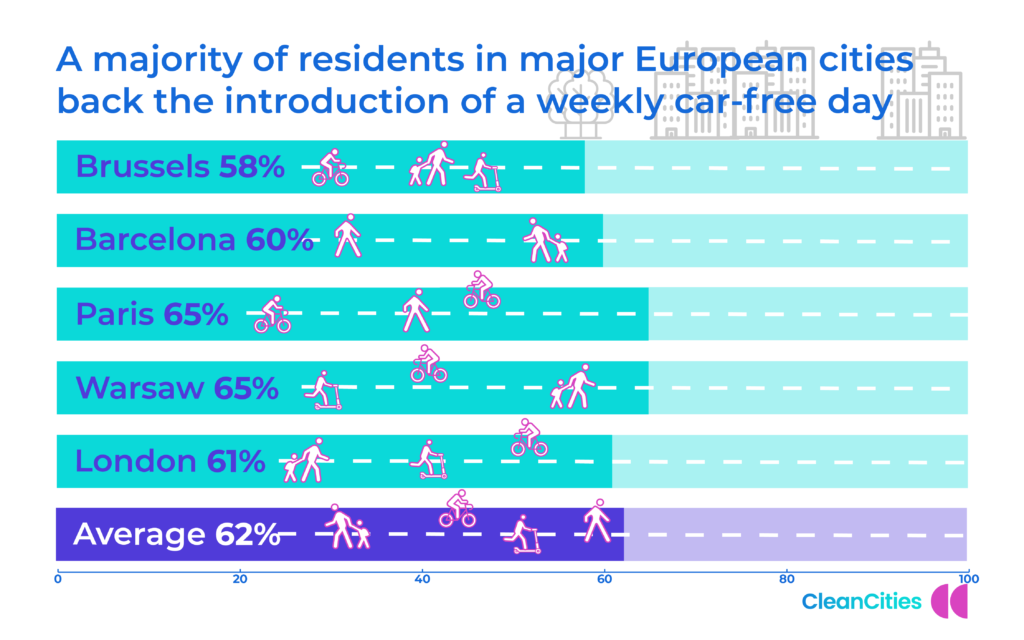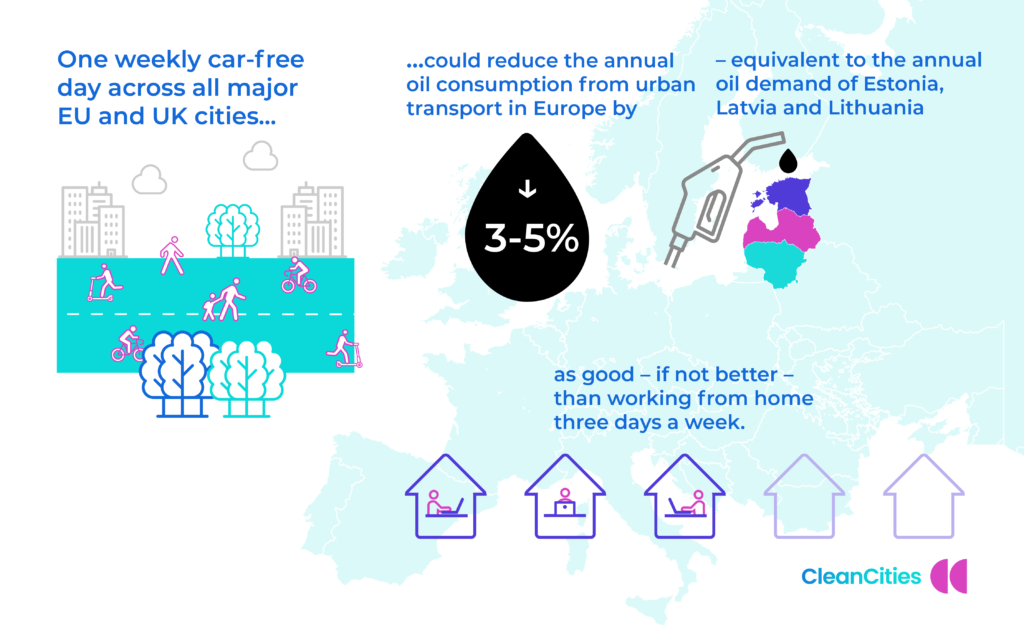It might sound like a far-fetched dream, but we know it’s possible.
And it’s a popular idea.
On World Car Free Day [1], new research launched by the Clean Cities Campaign reveals that 62% of people in 5 major European cities support the idea of one car-free day a week. Polling from London, Barcelona, Warsaw, Brussels and Paris shows that a solid majority of people were in favour of opening the streets of their cities to walking, cycling and clean air once a week. The idea was most popular in Warsaw, where 65% of respondents to the survey either “strongly supported” or “somewhat supported” one car-free day a week.

This is a representative survey carried out in June 2022 by Kantar Public with n=1000 respondents per city, weighted for age and gender.
Car-free days can cut oil consumption
Car-free days were used in the 1970s when the OPEC oil embargo caused prices to soar [2] – at that time 10 European countries introduced regular ‘car-free Sundays’. As Europe prepares for the introduction of an embargo on Russian oil following the invasion of Ukraine, we are faced yet again with an urgent need to reduce the continent’s fossil fuel dependence.
The Clean Cities Campaign believes car-free days are one of the easiest ways to make a significant dent in oil demand quickly. It’s also been recommended by the International Energy Agency [3] as European countries seek ways to reduce their dependence on oil.
In a new analysis, the Clean Cities Campaign found that one single car-free day implemented in major European cities could save between 541 and 945 thousand barrels of oil. One weekly car-free day in all major EU and UK cities could therefore reduce the annual oil consumption from urban transport in Europe by around 3 to 5%. This is equivalent to the annual oil demand of Estonia, Latvia and Lithuania.
The research shows that this can be as good – if not better – than working from home three days a week.

And there’s more
Car-free days can be implemented quickly. They do not need new infrastructure to be built, or complex regulations to be designed.
Barbara Stoll, Director of the Clean Cities Campaign says: “This research clearly shows that car-free days are a sure fire way to get cities off oil very fast without any complicated infrastructure or policy change. They are among the best short-term measures that are immediately available, cheap and easy to implement. Cities should consider car-free days as a measure to make an immediate dent in oil consumption but can also deliver a quick drop in toxic air pollution which kills thousands of Europeans a year. Besides, they are a great way to demonstrate to the public what life can be like in cities when the roads are not dominated by cars.”
References:
[1] Living Streets, World Car Free Day.
[2] Clean Cities Campaign, 2022. Car-free days: Not just a one-off.
[3] IEA, 2022. A 10-Point Plan to Cut Oil Use.



